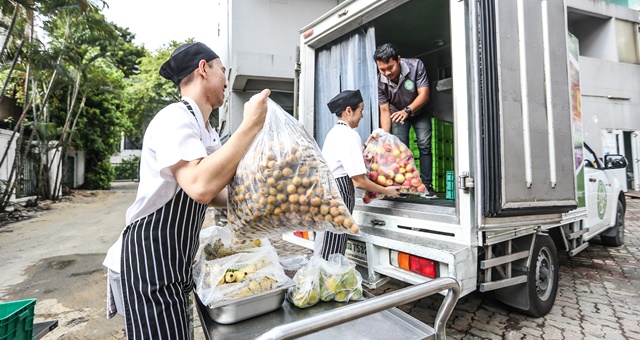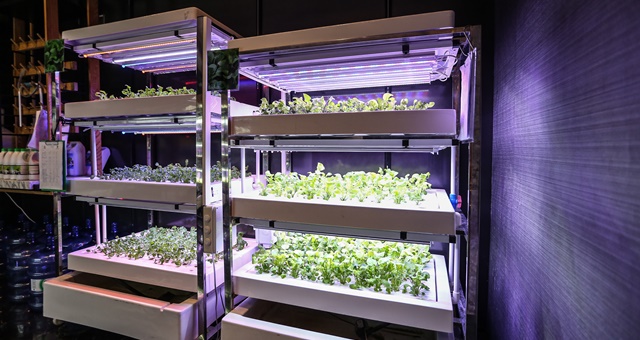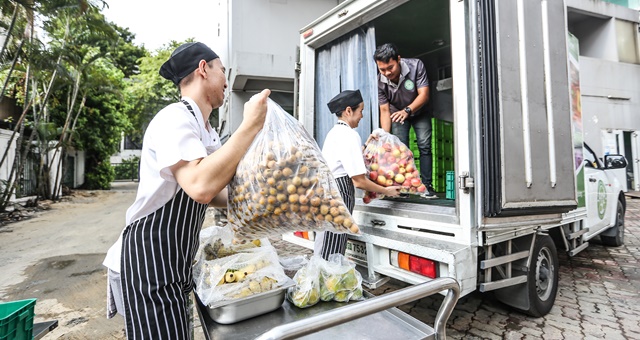
Marking the second anniversary of Marriott International’s flagship social impact and sustainability platform, Marriott International in Asia-Pacific is strengthening its commitment to sustainable operations. From hotel-led to regional and global initiatives, Marriott International is finding innovative ways to operate more sustainably.
“Travellers are increasingly concerned about the impact of tourism on the destinations they visit, so it’s important that we are transparent with our sustainability efforts and how we’re progressing,” said Craig Smith, Group President, Marriott International Asia Pacific. “We’ve made some great strides in advancing sustainability in Asia-Pacific over the last two years, and we will continue to positively impact the communities and environments in which we operate.”
In Asia-Pacific, Marriott International is making a positive and sustainable impact through its global sustainability and social impact program – Serve 360: Doing Good in Every Direction – that it launched in 2017. By the end of 2025, the company aims to decrease waste to landfill by 45%, cut food waste by 50%, and reduce water and carbon intensity by 15% and 30% respectively. With over 740 properties in the Asia Pacific region, Marriott International continues to use its size and scale to be a force for good.
In August, Marriott International announced its global initiative to switch single-use toiletry bottles with larger, pump-topped bottles in guestrooms by the end of 2020. At a local level, hotels are embedding sustainability throughout their operations to create more efficient facilities and offerings, and engaging with community organisations to benefit local communities.
With over 2,800 restaurants and bars in Asia Pacific, Marriott International also has the opportunity to reduce food waste through innovative dining concepts. Bangkok Marriott Marquis Queen’s Park Hotel launched a “Second Love” concept at Goji Kitchen + Bar, one of Bangkok’s largest all-day restaurants, to make best use of all ingredients, such as using pineapple peel to create a cocktail. The hotel contributes 37 kilograms of food on average to the Scholar of Sustenance Foundation Thailand (SOS) network, which redistributes meals to underprivileged people in Bangkok. It became the first urban five-star hotel in the world to receive the Pledge on Food Waste certification, continuing to work towards the company’s goal to achieve zero food waste to landfill.

With more companies looking for sustainable venues, Marriott International hotels are actively seeking ways to reduce waste in meetings and events. The Athenee Hotel, a Luxury Collection Hotel in Bangkok, offers a ‘Green Meeting Package’, which includes eco-friendly materials and refreshments. All the hotel’s conference venues and meeting rooms use minimal energy consumption and it was the first hotel in the world to attain an Event Sustainability Management System standard (ISO20121).
By 2025, Marriott International aims to locally source 50 percent of all produce and responsibly source 95 percent of its Top 10 priority categories – animal proteins (inclusive of beef, eggs, lamb, pork and poultry), cleaning supplies, bottled water, cocoa, coffee, guest room amenities, paper products, seafood, sugar and textiles. JW Marriott Phuket Resort & Spa installed a Generation Water system that draws drinkable water from the humidity in the air, to reduce the need for bottled water in the hotel. It is expected that the system will replace more than two million plastic bottles in 2019, significantly contributing to the company’s waste reduction and responsible sourcing goals.
Marriott International launched a responsible seafood awareness and education program across all hotels globally, encouraging them to consider alternative seafood species in dining outlets. The newly-opened Hong Kong Ocean Park Marriott Hotel designed all of its menus to comply with World Wildlife Fund standards, using only sustainable seafood in all its restaurants and catering. In Australia, W Brisbane’s Three Blue Ducks restaurant has curated a menu inspired by its Queensland locale featuring local, fresh and honest food.

